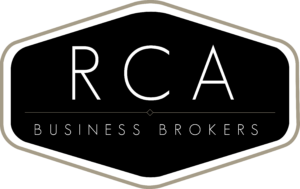INFORMATION GUIDE
What Are Management Rights?
In simple terms, Management Rights are a unique business focused upon looking after strata titled properties. First established on the Gold Coast over 40 years ago, there are now well over 3,000 management complexes Australia wide with an average value of between $1,000,000 – $4,000,000.
These complexes include three basic elements;
– The ownership of a lot or lots in a community titles scheme (usually unit and office)
– The caretaking of common property on behalf of a Body Corporate or Owners Corporation in the case of Victoria; and
– The onsite letting of units in the community titles scheme.
Each business package tends to consist of long-term caretaking and letting agreements, a manager’s residence, a set caretaking salary and potentially additional lots such as an office, conference room or commercial lot. Each business is different from the next, with all duties and definitions outlined in the caretaking and letting agreements.
This business model provides clearly identifiable expenses and returns and each business, if chosen wisely, comes with great potential to improve the bottom line through expansion of the manager’s letting pool.
From an operational perspective this model can be seen to be applied to all styles of property – from the traditional unit, townhouse, villa or resort style developments to more recent innovations such as corporate letting, student accommodation and retirement villages.
The Caretaking Role
The manager has a central interest in the presentation of the complex, as appearance and quality of on-site facilities will usually influence the manager’s ability to market the building to tenants. Common caretaking roles include the following;
– Maintenance of all lawns and gardens in common areas
– Common facilities such as the swimming pool and gym must be kept clean and operational
– Satisfaction of Workplace Health and Safety requirements to ensure for a safe environment for tenants
– Garbage disposal, cleaning of garbage bins, cleaning foyers and stairwells, windows and doors in common areas and outdoors areas are all attended to by the manager on behalf of the owners corporation; and
– Co-ordination of tradesmen and cleaners who carry out maintenance and repair of building items
The caretaking and maintenance of a management rights complex involves communication and co-operation between the body corporate committee, tenants and the manager. The body corporate committee will ensure all plant and equipment is made available to the manager to meet the required standards. Cleaning and maintenance roles can sometimes be allocated, at the manager’s expense, to a third-party contractor, should the manager require their assistance.
The Letting Agent Role
The resident manager is responsible for the marketing of those units within the letting pool, in order to achieve the greatest return for unit owners. In this role, the manager operates a trust account for all rent money collect and must satisfy the requirements of relevant legislation as administered by the Office of Fair Trading in the operation of the accounts. The manager makes a disbursement from the trust account to each letting owner each month, providing details of all income and expenses for the relevant units.
Types of Management Rights
Holiday: Short term accommodation usually found in coastal locations and popular tourist destinations. This form of letting tends to offer greater returns on investment as a result of income generated from rentals and service charges.
Corporate: Accommodation usually found within the CBD of capital or major cities, catering towards the corporate / business short and long stay market.
Permanent: Primarily long stay residential accommodation, with standard leases ranging from 6-12 months. A reliable business model that generates a steady income stream and can be considered to be the most easily managed Management Rights model.
Mixed: Generally a combined Permanent & Holiday letting business

